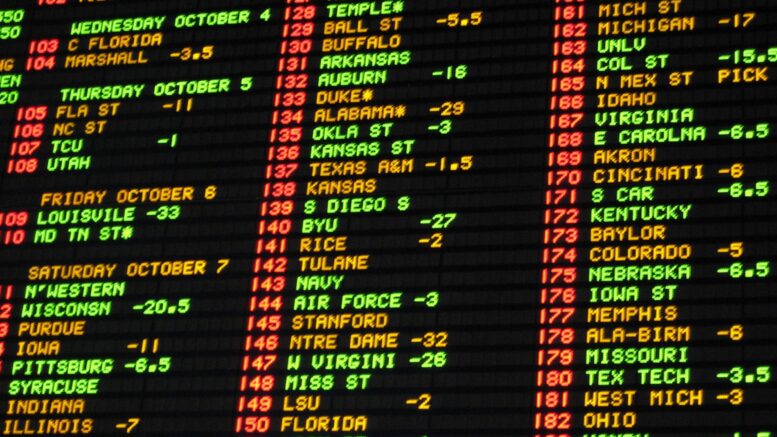The North Carolina Senate is considering a bill that would legalize sports gambling in the state.
Sponsors of the measure said it could mean $25 million to $50 million in economic benefits for North Carolina. Opponents argue, however, it could come with some social costs.
“You always have a group on this side of the issue, and it’s minimal. When you have a group on this side of the issue, and it’s perfectly horrible,” Sen. Jim Perry, R-Lenoir, told members of the Senate Committee on Finance on Wednesday. “I think if we’re to be reasonable about data, I understand there’s always a social impact for every choice. There’s a price to be paid for freedom.”
Senate Bill 688 authorizes and spells outs regulation for sports betting in North Carolina. It allows select licensed providers to offer online or in-person betting on horse racing and games, excluding youth sports, while 8% of the adjusted gross revenue goes to the state. Providers and operators also will be required to pay thousands of dollars in license and application fees to North Carolina under the measure.
Operators would have to pay $500,000 to apply for a sports wagering license issued by the North Carolina State Lottery Commission. Businesses that provide services to operators would pay $25,000 to apply for a service provider license. The current renewal fee for the sports wagering license under SB 688 is $100,000, and it would cost $10,000 to renew a service provider license.
Members of the Senate committee approved an amendment that would add a license for sports wagering suppliers, costing $15,000 with a $5,000 renewal fee.
Under the measure, 50% of the revenue would be directed to a new Events, Games, and Attractions Fund, which is intended to attract major events to the state. The other 50% would be directed to the state’s general fund.
If the bill passes, fiscal analysts estimated it could generate $2.7 million to $8 million in the current fiscal year and $8 million to $24 million in each following year. Perry hopes the lottery commission would distribute the funds as they do today, which he said goes to education.
North Carolina Family Policy Council President John Rustin said lawmakers should weigh the value of human life and relationships in their deliberations over SB 688.
Research from the Journal of Gambling Studies links the legalization of gambling to an increase in gaming. Rustin said it also could lead to an increase in gambling addiction.
“And just like with many other addictive behaviors, there are very high correlations between gambling addiction and increases in theft, embezzlement, job loss, personal bankruptcy, substance abuse, domestic violence, child abuse, divorce and yes, even suicide,” Rustin said.
The Rev. Mark Creech, the executive director of the Christian Action League, also spoke against the bill Wednesday. He said gambling goes against one of the fundamental principles of business: fair exchange. In most instances, people who pay to bet do not get anything of value from their output.
The committee gave the bill a favorable report Wednesday. Perry said illegal sports betting already is happening in North Carolina, and the legislation would regulate the industry and direct some of its proceeds to the state.
“I think it’s perfectly fine to disagree and not want to engage in [gambling] and not see it,” Perry said.” I think that’s someone’s right to feel that way, but because it exists today, I don’t think we can ignore that fact. And if you believe or someone [was] to believe, there’s a societal impact, then you have to believe that exists today.”
This article was originally posted on North Carolina senators weigh pros, cons of sports betting bill

Be the first to comment on "North Carolina senators weigh pros, cons of sports betting bill"